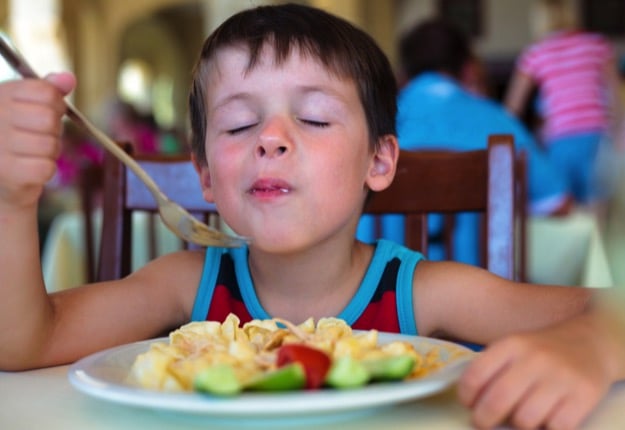Short attention span, hyperactivity, tantrums, and ADHD. Do those things sound familiar in your child’s behaviour?
Inevitably, some parents have to deal with these issues, you may see it in a restaurant, you may see it from your next door neighbour, you may see it at home with your unending requests to your child who don’t want to go to sleep yet.
Parenting really does not come with a manual and that’s important because every child is unique, unique thought processes, unique cognitive development, the way their individual body functions and their behaviour. But science is there to assist you in your child’s crucial development years.
In order to improve your child’s behaviour, you must pay attention to their physiological process, and focus on child’s nutrition and diet.
Just like adults, what we nourish our toddlers with will affect greatly his growth, one growth area of course is brain function and development which in turn affects behaviour.
Is your child currently eating a natural unprocessed diet? What are the significant nutrients he/she is getting?
Let’s take a look at what’s on your child’s plate:
1) Gluten and processed food
Considered one of the most poorly digested foods that causes an inflammatory response affecting brain function.
Eliminating this can greatly improve your child’s learning and behavioural problems.
Processed foods can also have this effect on children. Feed them instead with whole foods that are high in protein and fibre that aids digestion. If this doesn’t work, see if your child has food intolerances to items such as diary, wheat, eggs or any other items, after all every child is an individually and understanding their intolerances is the key to unlocking a healthy future.
2) Good fat
Foods that are rich in Omega 3 are essential for optimal brain function.
Omega 3’s DHA and EPA comes from fatty fish, these help to establish connections and chemical messengers in the brain.
3) Zinc levels
Zinc has been shown to improve ADHD symptoms as it helps the brain’s neurotransmitters to function well, zinc also aids in the metabolism of melatonin which regulates the hormone dopamine.
Research concludes that 150 mg/d of zinc can improved impaired social behaviour and can reduce hyperactivity and impulsiveness, foods that are rich in zinc include, meat, spinach, wheat germ, seafood, nuts, pumpkin, and squash.
4) Magnesium levels
Known to support the brain’s electrical activity, magnesium is also proven to increase cognition, it also has a calming effect on the central nervous system.
This is a fantastic nutrient for children with hyperactivity and a short attention span, foods that are high in magnesium include nuts, seeds, fish, soybeans, avocado, banana, and dark leafy greens.
5) Water
Is your child getting enough? Water is a vital player in the health and wellbeing of your child.
Importantly, avoid sugar, any product that contains refined or processed sugars or syrups will undoubtedly have a negative impact on your child’s behaviour.
Of course it’s important to speak to your doctor to see if the information contained in this article is right for you and your child, you and your doctor know your child best.
Have you ever made changes to your child’s diet and noticed an improvement for the better? Please share in the comments below.




















10:02 am
9:10 pm
5:37 pm
2:43 am
4:14 pm
5:11 pm
6:54 pm
8:18 pm
3:49 pm
3:31 am
9:28 pm
7:34 am
1:07 pm
11:42 am
9:06 pm
4:00 pm
8:12 pm
3:52 pm
9:41 pm
12:25 pm
-

-
-
momma green replied
- 22 Sep 2015 , 10:29 am
Reply- 1
- 2
- 3
- »
Post a commentTo post a review/comment please join us or login so we can allocate your points.